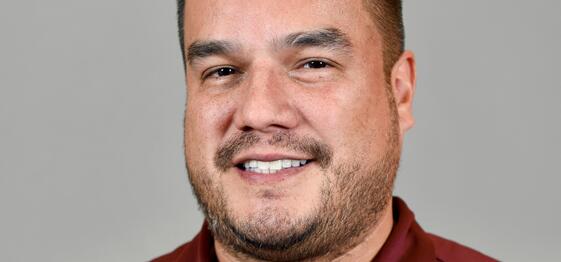Senator Spotlight March 2024
Categories:
Senator Spotlight
YOUR NAME:
Francisco (Cisco) J. Sánchez
What unit do you represent?
School of Counseling & Counseling Psychology
How many years have you served in the Senate?
This is my second year.
How many years have you been employed at ASU?
This is my second year.
What other institutions have you taught at before coming to ASU?
I was in an extensive post-doctoral fellowship at UCLA that included undergraduate teaching. Then I was a faculty member at the University of Wisconsin (Madison) and the University of Missouri (Columbia) before coming to ASU.
What is your research and/or creative activities focus?
Given that I was in a genetics lab for my post-doc, most of my early work focused on the biopsychological basis of sexual orientation and gender identity. Although I will still write on that topic, my current work primarily focuses on the impact of traditional gender norms on LGBTQ well-being. I’m also heavily involved in translating psychological science for policy makers, primarily helping the American Psychological Association (APA) develop amicus briefs for the federal courts and writing expert opinions for cases involving elite athletes.
Why did you decide to get involved with the Senate?
I have always had an interest in participating in various aspects of governance. Aside from keeping decision-makers accountable for their actions, active involvement in governance serves to empower citizens and guarantees the incorporation of diverse viewpoints. Professionally, my governance involvement has primarily been with different APA boards and committees. At the faculty level, I have served on the Senate at Wisconsin and the Faculty Advisory Committee at Missouri. Thus, representing my School at ASU felt like a seamless extension, drawing upon my experience in governance across many major institutions.
Describe what you have learned (or hope to learn) during your time in the Senate?
ASU is a massive institution. Although how the Senate functions feels very familiar, there is a lot for me to learn about the university’s dynamics, policy development, and institutional leadership. Being on the Senate will allow me to more quickly learn about ASU so that I can more effectively work to advance the mission and vision of the School that I represent.
What committees have you participated in, or would like to participate in and what were you able to (or hope to) accomplish?
I have yet to serve on a committee, which is probably good given that I’ve been spending a considerable amount of time learning and executing my duties as Director of Undergraduate Training for my School. However, in the future I’d be interested in committees that are related to the areas we are beginning to expand into, including sport counseling and military mental health. This would allow me to serve the university while possibly learning ways to enhance the training of our undergraduates who are interested in working with specific communities.
What would you say to your peers who might be considering accepting a nomination or nominating himself or herself for a position in the University Senate?
As with most things in life, you will get out of the experience what you put into it. At the very least, serving on the Senate will give you a better sense of the role that faculty can play in fulfilling the university’s mission. At the more involved level, you can play a role in influencing decisions and policies that affect the entire university community.